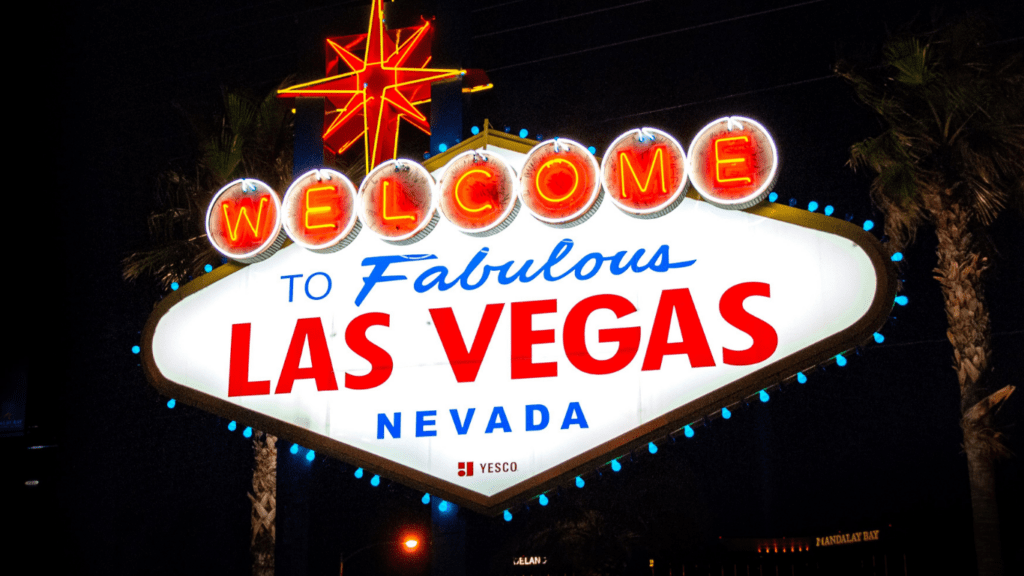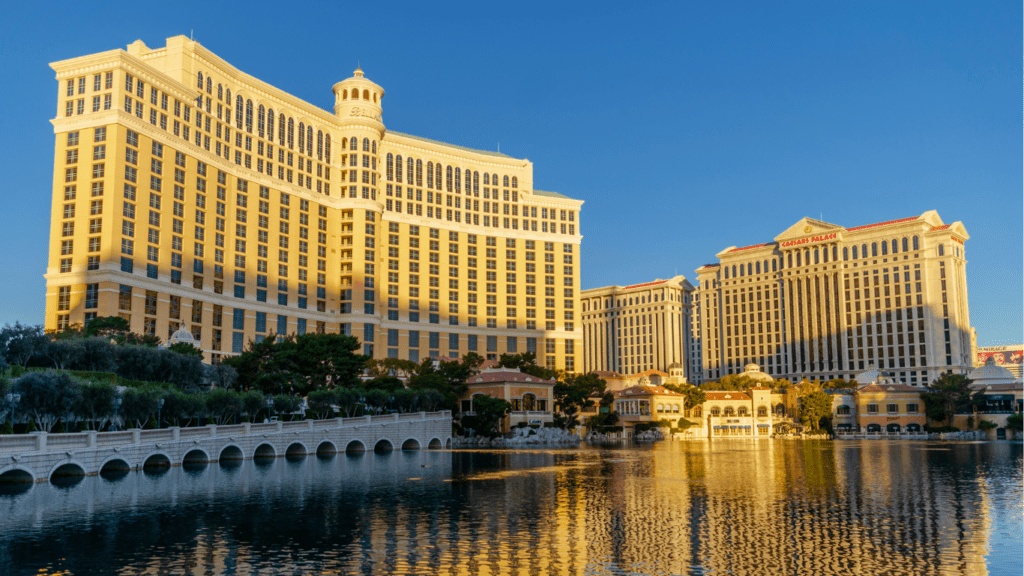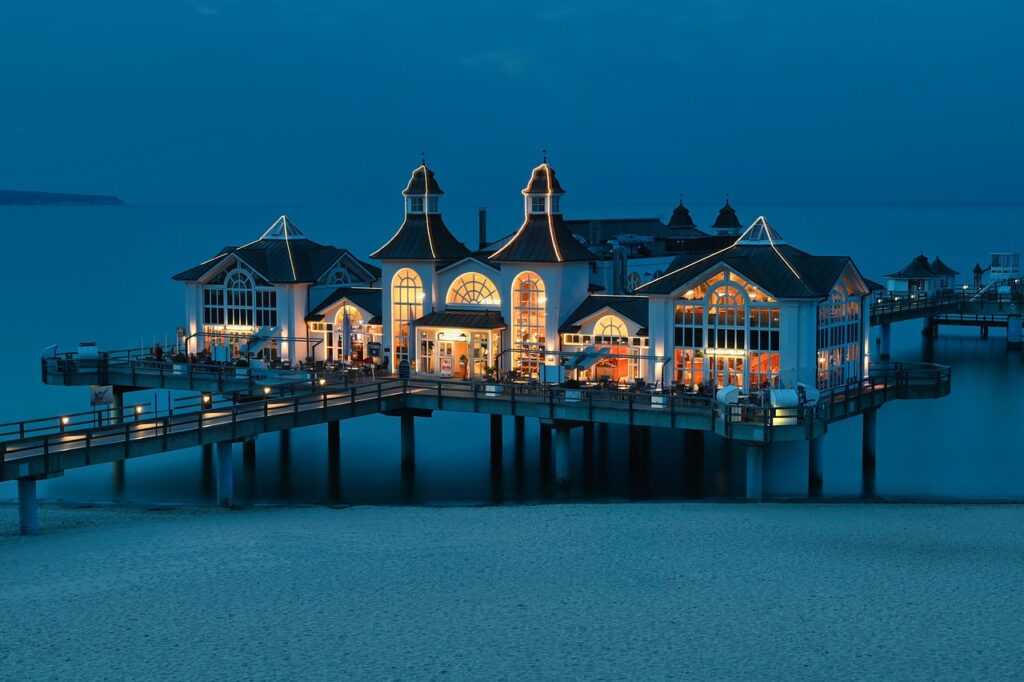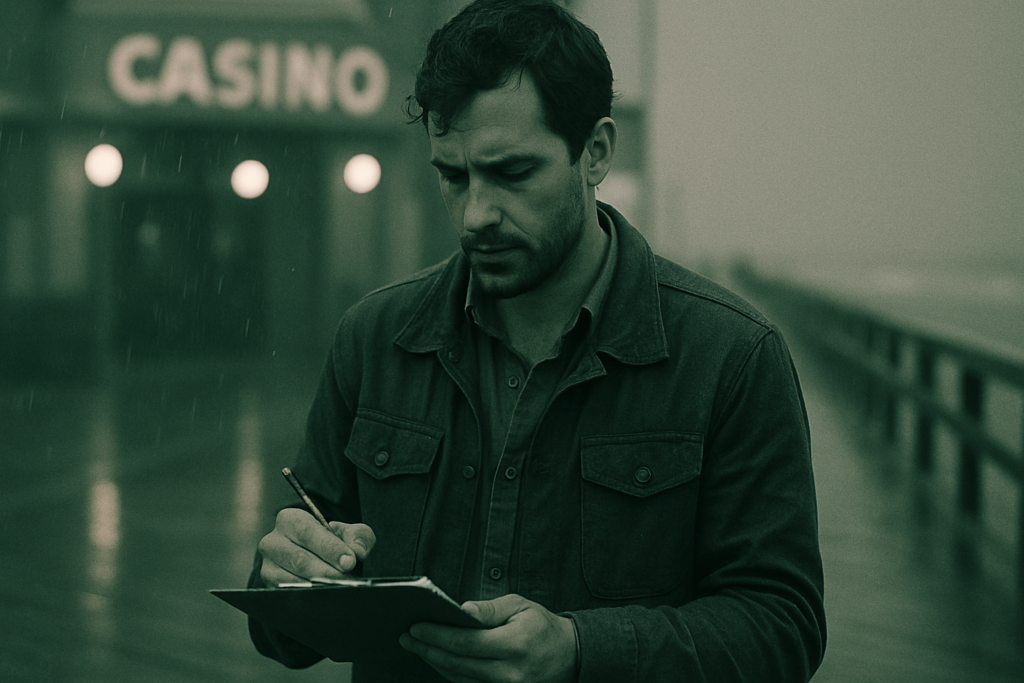Las Vegas, often dubbed the “Entertainment Capital of the World,” has a history as colorful as its neon lights. From its humble beginnings as a desert outpost, it transformed into a glittering oasis of casinos, shows, and endless excitement.
Early Beginnings of Las Vegas
Las Vegas’s roots lie in its strategic location as a desert oasis. By understanding its early beginnings, we uncover how it set the stage for its later transformation into the casino capital.
The Founding of Las Vegas
Las Vegas was officially founded on May 15, 1905, when 110 acres of land were auctioned off by the railroad companies. This area, located near the Union Pacific Railroad tracks, became the core of modern-day Las Vegas. The city’s establishment happened due to its proximity to a reliable water source, the Las Vegas Springs, which attracted settlers and facilitated agriculture and trade in the region.
Early Settlements and Growth
The first settlers in Las Vegas were primarily ranchers and railroad workers. They built the initial infrastructure, including houses, schools, and businesses.
The completion of the Hoover Dam in 1936 marked a significant milestone for the city. This massive construction project brought thousands of workers to the area, spurring population growth and increasing the local economy. During this period, Nevada legalized gambling in 1931, setting the foundation for Las Vegas’s future as a casino hub.
The Rise of Casinos

Las Vegas’ transformation into the world’s casino capital began in the early 20th century following the legalization of gambling in Nevada in 1931. This pivotal moment marked the start of an era defined by gaming, entertainment, and nightlife.
The Birth of the First Casinos
The first casinos in Las Vegas emerged soon after the legalization of gambling. One of the earliest establishments, the Northern Club, opened its doors in 1931 and quickly became a hotspot for gaming enthusiasts.
By 1941, the El Rancho Vegas set a new standard by being the first hotel-casino on what is now known as the Las Vegas Strip. The development of such venues attracted visitors and investors, fueling further growth. These pioneering casinos laid the foundation for the city’s future, blending gambling with luxury accommodation and entertainment.
Influence of Organized Crime
Organized crime had a significant impact on the development of casinos in Las Vegas. In the 1940s and 1950s, mobsters like Bugsy Siegel and Meyer Lansky invested heavily in casino ventures. Siegel’s investment in the Flamingo Hotel transformed it into a lavish resort, setting a precedent for future establishments.
While these mob figures sought to capitalize on the booming gambling industry, their involvement brought both prosperity and notoriety to the city. The federal crackdown on organized crime in the 1960s gradually diminished mob influence, leading to corporate ownership and more regulated operations in subsequent decades.
Las Vegas casinos became synonymous with both opulence and intrigue during these transformative years.
Iconic Casinos and Milestones
Las Vegas is home to some of the world’s most iconic casinos. These celebrated establishments mark significant milestones in the city’s history.
The Flamingo Hotel and Casino
The Flamingo Hotel and Casino opened in 1946, setting a new standard in luxury and entertainment. Bugsy Siegel, a notorious organized crime figure, played a pivotal role in its development. Featuring 77 rooms, a high-end restaurant, and a lavish casino, the Flamingo became a blueprint for future Vegas resorts. Despite Siegel’s untimely demise, the Flamingo thrived, cementing its legacy in the annals of Las Vegas history.
The Stardust Resort and Casino
The Stardust Resort and Casino debuted in 1958, renowned for its futuristic theme and neon signage. With over 1,000 rooms, it was the largest hotel in the world at its opening. Stardust’s showroom featured performances by famous entertainers like Wayne Newton and Siegfried & Roy. Notably, the Stardust played a role in popularizing baccarat, which became a staple in Las Vegas casinos. The resort’s impact resonated until its closure in 2006.
Modern Marvels: The Bellagio and Beyond
The Bellagio, opening its doors in 1998, epitomized modern Las Vegas luxury. With its Italian-inspired architecture, renowned fountain show, and art gallery, it set a new benchmark for opulence.
Other modern marvels include The Venetian, known for its intricate canal system, and the technologically advanced ARIA Resort & Casino. These state-of-the-art resorts ushered Las Vegas into the 21st century, transforming it into a global entertainment hub.
Social and Economic Impact
Las Vegas has not only made its mark as a premier entertainment destination but also profoundly impacted society and the economy.
Employment and Economic Contributions
- Casinos and hospitality services form the backbone of Las Vegas’s economy.
- Approximately 40% of the city’s workforce is employed in the tourism sector, including hotels, restaurants, and entertainment venues, according to the Las Vegas Convention and Visitors Authority.
- In 2019 alone, Las Vegas welcomed over 42.5 million visitors. This influx of tourists generates significant revenue, contributing nearly $60 billion to the local economy each year.
- Las Vegas has diversified its economic base beyond gaming. Convention and trade show businesses bring in professionals from various fields, contributing to higher occupancy rates in hotels and boosting related services
- Major tech companies have also established operations in Las Vegas, drawn by favorable tax policies and a skilled workforce.
Cultural Influence and Popularity
Las Vegas’s cultural influence is substantial. It has become synonymous with entertainment, glamour, and nightlife. Iconic performances by renowned artists, such as Elvis Presley and Celine Dion, solidified its reputation as a global entertainment hub. The city’s influence extends beyond entertainment, as it frequently appears in films, television shows, and literature, further embedding itself in popular culture.
Las Vegas has also impacted social norms. Destination weddings and quick marriage ceremonies at themed chapels have become cultural phenomena. The city’s liberal approach to entertainment, epitomized by the phrase “What happens in Vegas, stays in Vegas,” appeals to those seeking a temporary escape from everyday life.
Las Vegas Today
Las Vegas continues advancing as a major hub for gaming and entertainment. The city seamlessly blends its historic elements with modern attractions, maintaining its status as a premier destination.
The Evolution of the Casino Scene
Casinos in Las Vegas have transformed from simple gambling houses to elaborate resorts. The early days featured establishments like El Rancho Vegas and the Flamingo. Over the decades, integrated resorts like:
- Bellagio
- Venetian
- MGM Grand emerged
offering luxury accommodations, world-class dining, and top-tier shows. Technological advancements, particularly in gaming, have made slot machines more interactive and table games more engaging.
Current Trends and Future Prospects
Las Vegas adapts to contemporary trends by embracing technology and diverse entertainment. eSports arenas, like the Luxor’s HyperX, attract new demographics. Augmented and virtual reality experiences enhance the traditional casino environment.
The city anticipates economic growth through initiatives like the Las Vegas Global Business District, aiming to make it a premier trade and business hub. Sustainability practices, from eco-friendly resorts to renewable energy projects, highlight a commitment to reducing environmental impact while maintaining its vibrant allure.



 Sienna Lyne
Author
Sienna Lyne is the talented author behind Bet Wise Daily's engaging and informative content. With a background in journalism and a keen interest in the gambling world, Sienna excels at crafting articles that are both insightful and accessible. Her work covers a wide range of topics, from the latest casino developments to in-depth features on gambling strategies. Sienna's meticulous research and sharp writing skills make her a valuable asset to the team, providing readers with trustworthy information and thought-provoking analysis.
Sienna Lyne
Author
Sienna Lyne is the talented author behind Bet Wise Daily's engaging and informative content. With a background in journalism and a keen interest in the gambling world, Sienna excels at crafting articles that are both insightful and accessible. Her work covers a wide range of topics, from the latest casino developments to in-depth features on gambling strategies. Sienna's meticulous research and sharp writing skills make her a valuable asset to the team, providing readers with trustworthy information and thought-provoking analysis.
